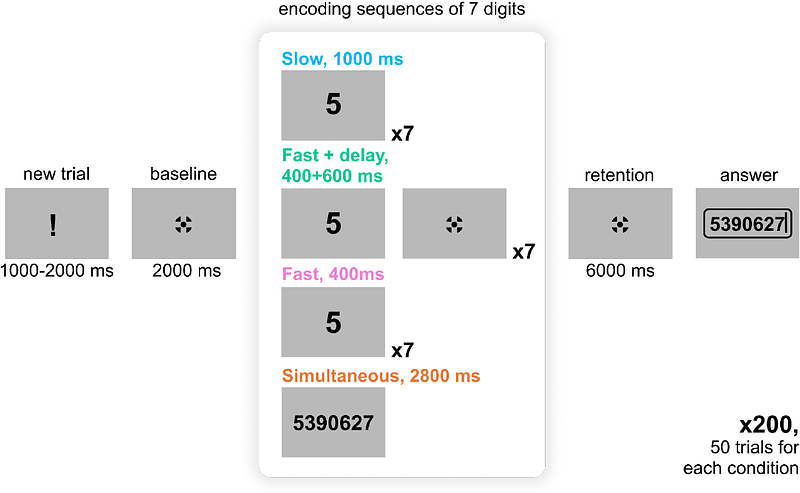Alpha activity during verbal working memory retention depends on the stimulus presentation mode

Alpha activity during verbal working memory retention depends on the stimulus presentation mode
Kosachenko, A. I.; Syttykov, D. I.; Tarasov, D. A.; Kotyusov, A. I.; Kasanov, D.; Kotchoubey, B.; Pavlov, Y. G.
AbstractPrevious studies of verbal working memory (WM) have reported inconsistent changes in alpha power during retention, with both increases and decreases observed. We asked whether these discrepancies arise from how stimuli are presented. Thirty adults memorized seven digits presented in four modes: Simultaneous (all digits for 2800 ms) or sequential presentations at Fast (400 ms per digit), Slow (1000 ms per digit), and Fast+delay (400 ms per digit plus a 600 ms free time in between). We analyzed EEG during encoding and a 6 s retention period in theta (4-7 Hz), alpha (8-13 Hz), and beta (18-24 Hz) frequency bands. Recall accuracy was highest in the Simultaneous mode and lowest in the Fast mode, yet these two conditions did not differ in any frequency band during encoding or retention. Encoding produced parametric load-related theta increase and beta decrease, possibly reflecting growing executive control demands and motor program formation, respectively. Alpha power did not scale with load during encoding. During retention, theta and beta during retention were unaffected by presentation mode. Alpha power did not differ significantly when all sequential modes were grouped together compared to the simultaneous mode. However, the Fast+delay mode uniquely showed below-baseline alpha in the first half of the retention. Our findings suggest that alpha dynamics are sensitive to the temporal structure of encoding and retention periods, particularly the presence or absence of free intervals between stimulus presentations. We propose that alpha modulation during WM retention may reflect processes beyond the simple gating of irrelevant sensory information.